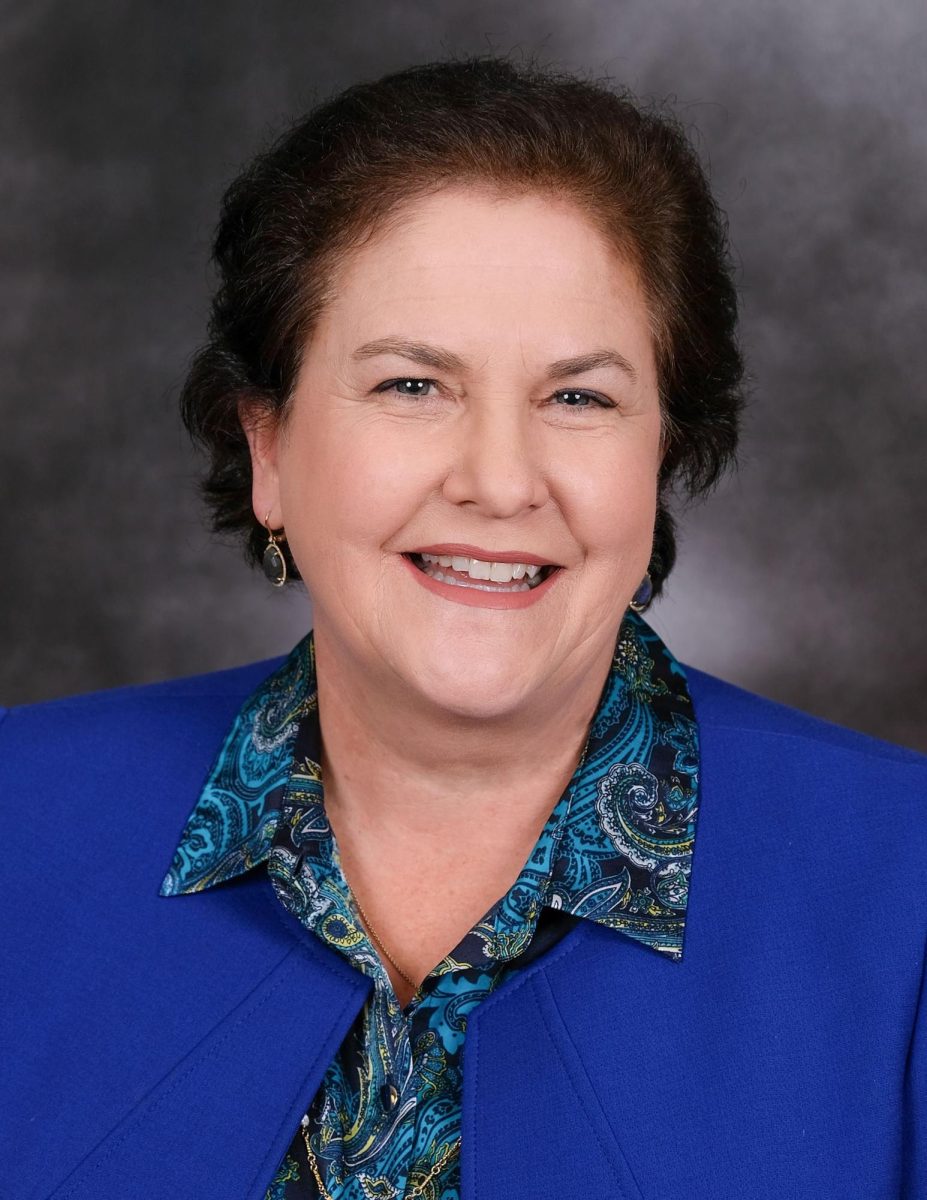Los graduados de la Escuela Secundaria de Primera Generación Asisten a la Universidad
June 8, 2021
Caminar por los pasillos de un nuevo campus universitario será la realidad de muchos estudiantes de último año que se gradúen el próximo otoño. Mientras que para algunos, asistir a la universidad es una expectativa básica, otros están logrando un sueño de toda la vida. Muchos estudiantes universitarios de primera generación y estudiantes que no hablan inglés en particular luchan con el proceso de solicitud de ingreso a la universidad. Aquí es donde ayuda el programa de desarrollo del idioma inglés (ELD) de Redwood. ELD brinda apoyo para que los estudiantes no nativos de habla inglesa aprendan y se destaquen en inglés. Con Deborah McCrae como su directora y Candace Gulden ofreciendo apoyo a los estudiantes que solicitan ingreso a las universidades, muchos estudiantes de último año en la clase de ELD han podido ingresar con éxito en su universidad preferida.

Sherlyn Diaz, estudiante de último año en la clase de ELD, planea asistir a College of Marin el próximo otoño.
“La universidad no era algo de lo que hablara en casa porque la mayoría de las veces mi familia no podía ayudarme,” dijo Díaz. “Soy el primero en asistir a la universidad y mi familia no sabía cómo ayudarme. Depende de mí encontrar recursos y buscar la ayuda que necesitaba.”
El sueño de Díaz de asistir a la universidad no se habría hecho realidad sin el apoyo de 10,000 Degrees, una organización sin fines de lucro dedicada a ayudar a los estudiantes de bajos ingresos a lograr la equidad educativa. Con su ayuda, Díaz y algunos de sus compañeros de ELD pudieron postularse con éxito a las universidades que deseaban y a la especialidad de su elección.
McCrea reconoce la importancia de programas como 10,000 Degrees y se esfuerza por brindar a sus estudiantes recursos a lo largo de su proceso de solicitud.
“Todos los estudiantes de mi clase son estudiantes universitarios de primera generación, por lo que están tomando el proceso de solicitud de ingreso a la universidad sin mucho conocimiento, a diferencia de muchos estudiantes en [Redwood] que tienen a sus padres como apoyo,” dijo McCrea. “Hicimos lo mejor que pudimos al indicarles la dirección de aquellos que podrían ayudarlos y también al pedir orientación a nuestros tutores principales.”

Este tipo de recursos son esenciales considerando que casi la mitad de muchas poblaciones universitarias son estudiantes universitarios de primera generación; serán los primeros en sus familias en obtener una licenciatura, según el Centro para el Éxito de los Estudiantes de Primera Generación (The Center). El Centro es una organización dedicada a proporcionar a los estudiantes universitarios de primera generación recursos para ayudar con el proceso universitario. También encontraron que, a
partir de 2015, el 24 por ciento de la mayoría de los estudiantes universitarios de 4 años en los Estados Unidos eran los primeros en su familia en recibir una educación postsecundaria y asistir a la universidad.
Díaz, quien es la primera de su familia en asistir a la universidad, siente que ha establecido un estándar para sus hermanos menores. Al trabajar duro y ser resiliente durante todo el proceso de solicitud, ella y sus compañeros de ELD pudieron demostrar que ingresar a la universidad es posible y alcanzable para todos.
“Mis hermanos me han visto pasar por el proceso y saben que voy a la universidad. Esto significa que ahora se espera que ellos también asistan a la universidad,” dijo Díaz. “No tenía a nadie a quien mirar como ejemplo cuando estaba solicitando, pero ahora lo tienen, y me alegro de ser eso para ellos.”
Al igual que Díaz, sin hermanos mayores a quienes admirar, el estudiante de último año de ELD, Cesar Oroxom, fue a la universidad con la esperanza de convertirse en abogado en el futuro. Al ver que se desarrolla la injusticia en Marin, espera mejorar las cosas para su comunidad mientras puede mantenerse a sí mismo y a su familia.

“Espero utilizar la educación que obtengo en la universidad para ayudar a mi comunidad a crecer y prosperar,” dijo Oroxom. “Espero poder crear un cambio que luego inspire a otros a perseguir sus sueños de ir a la universidad y encontrar la felicidad en lo que hacen.”
Suyun Huh, otra estudiante de ELD, quiere buscar un trabajo que le guste mientras mejora los días de las personas. Con una pasión de toda la vida por la repostería, decidió tomar una ruta diferente después de la escuela secundaria y asistir a la escuela culinaria.
“Quiero estudiar repostería porque comer dulces siempre me hace feliz y quiero hacer lo mismo con los demás,” dijo Huh. “Siempre he querido hacer esto, pero estoy muy nervioso por entrar en este nuevo campo porque nadie en mi familia ha estado nunca en la escuela culinaria.”
Si bien Huh y sus compañeros de clase han expresado su ansiedad en torno a la universidad, están entusiasmados con las oportunidades que les brindará su educación universitaria.
“La universidad no se trata solo de la educación sobre un tema determinado que estás estudiando. Se trata de aprovechar cada oportunidad para aprender,” dijo Díaz. “Quiero aprender a comunicarse interactuar mejor con los demás porque eso es lo que me abrirá las puertas en el mundo real, además de ser un buen estudiante.”
[ENGLISH]
Walking down the hallways of a new college campus will be the reality of many graduating seniors next fall. While for some, attending college is a basic expectation, others are achieving a lifelong dream. Many first-generation college students and non-English speaking students in particular struggle with the process of applying to college. This is where Redwood’s English Language Development program (ELD) helps. ELD provides support for non-native English-speaking students to learn and excel in English. With Deborah McCrae as their headteacher and Candace Gulden offering support to students applying to colleges, many seniors in the ELD class have been able to successfully gain admission at their preferred college.
Sherlyn Diaz, a senior in the ELD class, plans to attend the College of Marin next fall.
“College was not something I talked about at home because most of the time my family could not help me,” Diaz said. “I am the first to attend college and my family did not know how to help me. It was up to me to find resources and look for the help I needed.”
Diaz’s dream of attending college would not have become a reality without the support of 10,000 Degrees, a nonprofit organization dedicated to helping low-income students attain education equity. With their help, Diaz and some of her ELD classmates were able to successfully apply to their desired colleges and major of choice.
McCrea recognizes the importance of programs such as 10,000 Degrees and makes an effort to provide her students with resources throughout their application process.
“All of the students in my class are first-generation college students, so they are taking the college application process head-on and without much knowledge, unlike many students at [Redwood] who have their parents for support,” McCrea said. “We did the best we could by pointing them in the direction of those who could help them, and by asking our senior tutors for guidance as well.”
These types of resources are essential considering that almost half of many college populations are first-generation college students; they will be the first in their families to get a bachelor’s degree, according to The Center for First-Generation Student Success (The Center). The Center is an organization dedicated to providing first-generation college students with resources to aid with the college process. They also found that, as of 2015, 24 percent of most 4-year-college students in the United States were the first in their families to receive post-secondary education and attend college.
Diaz, who is the first to attend college in her family, feels she has set a standard for her younger siblings. By working hard and being resilient throughout the application process, she and her ELD classmates were able to prove that getting into college is possible and attainable for everyone.
“My siblings have seen me go through the process and know I am going to college. This means that it is now expected of them to attend college as well,” Diaz said. “I had no one to look up to as an example when I was applying, but now they do, and I am glad to be that for them.”
Similar to Diaz, with no older siblings to look up to, ELD senior Cesar Oroxom pursued college in hopes of becoming a lawyer in the future. Seeing injustice play out in Marin, he hopes to make things better for his community while being able to support himself and his family.
“I hope to use the education I gain in college to help my community grow and prosper,” Oroxom said. “I hope to be able to create change that will then inspire others to chase after their dreams of going to college and finding happiness in what they do.”
Suyun Huh, another ELD student, wants to pursue a job that she finds enjoyable all while improving peoples’ days. With a lifelong passion for baking, she decided to take a different route after high school and attend culinary school.
“I want to study baking because having sweet treats always makes me happy and I want to do the same for others,” Huh said. “I have always wanted to do this, but I am very nervous to be going into this new field because no one in my family has ever been to culinary school.”
While Huh and her classmates have expressed their anxieties surrounding the college, they are excited about the opportunities their college education will open for them.
“College is not just about the education on a certain topic you are studying. It is about taking advantage of every opportunity to learn,” Diaz said. “I want to learn how to better communicate and interact with others because that is what will open doors for me in the real world, as well as being a good student.”







